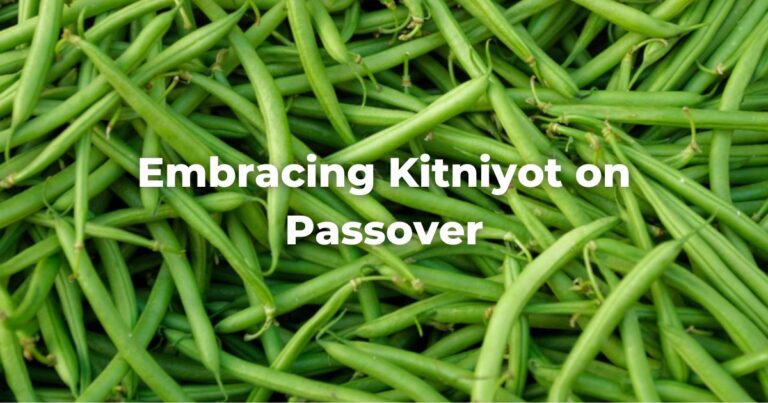Back in the days of the late 2010s, Passover seders were known for being grand celebrations! Many synagogues and Jewish Community Centers set up community-wide seders to ensure everyone had a place to go.
Then, March 2020 happened – we entered Unprecedented Times.
As folks started working exclusively from home and non-essential services shuttered their doors, many wondered how they would be able to celebrate Passover together. Thanks to modern technology like Zoom, many of us could participate in at least some kind of Seder with family and friends virtually, even if we couldn’t all be together in person.
It was ok; it wasn’t like it would be forever or anything, right?
Well, here we are now, and we’re still planning at least some elements over Zoom for Passover celebrations. Only this time, we know what to expect and can make our Zoom seders just as, if not more, meaningful as those in-person. Below are some tips to ensure that you and your guests won’t succumb to Zoom fatigue.
Preparation is key.
In the days leading up to the Seder, make sure that everyone has everything they will need to be successful.
Hosting a Zoom seder is not as simple as just putting a webcam on your seder plate and having people watch. The most successful Seder is a participatory seder – even more so when it’s virtual or hybrid. If guests are not participating, they’re not engaged. So why not just watch the Rugrats Passover episode instead?
When deciding on which Haggadah you would like to use, let everyone know which text beforehand. In the Before Times, it was common for families to have a preferred Haggadah. If that is the case, let everyone know at least a few days in advance to allow them time to order their copies.
If sharing a digital Haggadah, be sure to include instructions so that all can access their text while also on Zoom. (Even if using a digital text, some participants may prefer to print a hard copy ahead of time.)
Assign parts ahead of time. Each device that’s logged on can lead a different part of the evening. Have them share their thoughts and opinions on how Passover is unique to them, meaningful this year, and/or if it lacks meaning – that’s a great discussion starter!
And don’t forget to ask questions. The Seder is, by its very nature, interactive!
In addition to telling the story, there are the accouterments of the Seder: everyone should have ample time to build their seder plate, secure their food, wine, cups, and everything they need in advance. If guests are shuffling back and forth trying to find the next cup or seder plate materials, they will likely miss out on something.
Set them up for success by providing the ingredient and materials list in advance.
The Benefits of Zoom seder
Accept and embrace new traditions. This is not the first year of Zoom seders and probably not the last either. On the plus side, this new tradition has several benefits as well. Folks not traveling for the holiday can enjoy the money saved while still “seeing” the friends and family they were planning to celebrate with in the first place.
Not only that, but often specific travel plans made some invitations unavailable or impossible – we couldn’t possibly be in multiple locations simultaneously. But now, we may have the option to attend multiple seders in one night! I recommend switching to the grape juice at some point though…
Self-compassion
Above all, be kind to yourself. It’s ok to say good night when it’s time for the meal. And if you don’t log back on later, that’s ok too.
At its core, the Seder is about telling the story of the exodus, remembering the burden of slavery, the majesty of the plagues, and the miracle of salvation. You’ve done the mitzvah if you feel like you’ve covered all of those things and spent some quality facetime with others (no pun intended). No need to stress; simply “leave meeting” with a smile.
Author
-

Rabbi Eric Leiderman (he/they) is an award-winning community builder and Jewish educator with over a dozen years of expertise working with youth and emerging adults. He is the Midwest Regional Director of IsraelLINK, President & co-founder of Masorti on Campus, and serves on several boards of directors of national Jewish nonprofits. Eric grew up in the New York Metropolitan Area and has spent significant time in several North American Jewish communities and Israel. He currently resides in Chicago, Illinois, with his family.
View all posts






